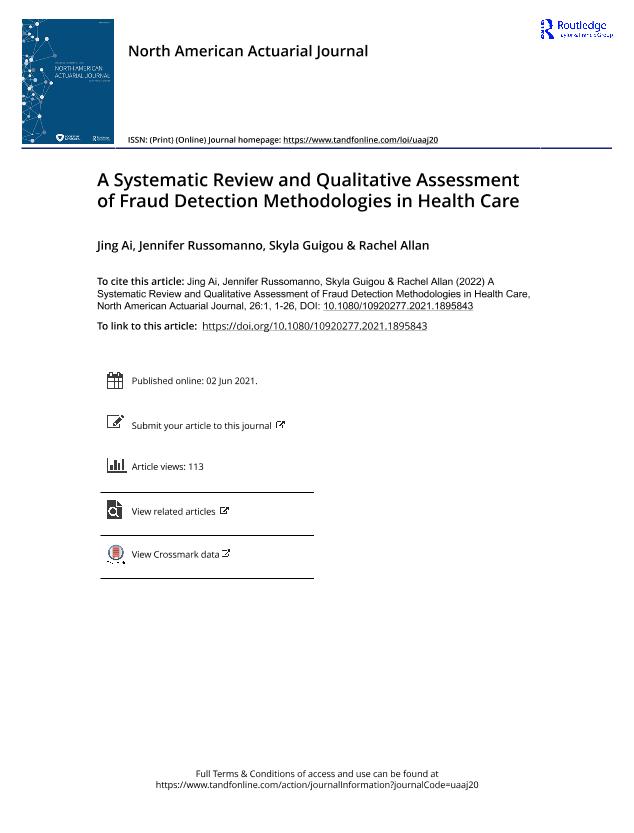Registros relacionados: En: North American actuarial journal. - Schaumburg : Society of Actuaries, 1997- = ISSN 1092-0277. - 07/03/2022 Tomo 26 Número 1 - 2022 , p. 1-26Materia / lugar / evento: Fraude en el seguro Seguro de salud Detección y alarma Evaluación Fraude Outras classificações: 6
A Systematic Review and Qualitative Assessment of Fraud Detection Methodologies in Health Care

Contenido multimedia no disponible por derechos de autor o por acceso restringido. Contacte con la institución para más información.
Registros relacionados: En: North American actuarial journal. - Schaumburg : Society of Actuaries, 1997- = ISSN 1092-0277. - 07/03/2022 Tomo 26 Número 1 - 2022 , p. 1-26Materia / lugar / evento: Fraude en el seguro Seguro de salud Detección y alarma Evaluación Fraude Outras classificações: 6

